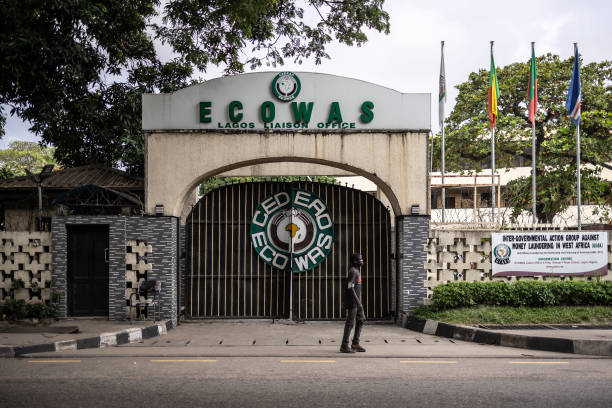
ECOWAS COURT HEARS SERAP’S SUIT AGAINST FG OVER CYBERCRIME ACT AND FREE SPEECH VIOLATIONS
By Aishat Momoh. O.
The ECOWAS Community Court of Justice sitting in Lagos has commenced proceedings in a fundamental human rights lawsuit filed by the Socio-Economic Rights and Accountability Project (SERAP) against the Federal Government of Nigeria (FGN) over alleged violations of free speech through the enforcement of the Cybercrime Act.
The case was presided over by a panel led by the President of the Court, Justice Ricardo Cláudio Monteiro Gonçalves, with Kehinde Oyewunmi representing SERAP and Okoye Princewill appearing for the Federal Government.
At the start of the hearing, the Federal Government’s counsel notified the court of a pending application for an extension of time to respond to the suit. The application was not opposed by SERAP, prompting the court to allow both sides to make oral arguments.
Arguing the case, SERAP’s counsel told the court that the suit, filed on January 9, 2025, seeks to protect the fundamental rights of Nigerians, particularly the right to freedom of expression. He alleged that Section 24 of the Cybercrime Act has been repeatedly misused by law enforcement agencies to silence critics and suppress dissent, actions he said are inconsistent with international human rights norms.
Mr. Oyewunmi submitted that the ECOWAS Court has jurisdiction to hear the case and that the matter is admissible. He emphasized that SERAP had provided a detailed account of facts and a supporting affidavit to substantiate the claims.
In response, the Federal Government’s counsel acknowledged receipt of the suit documents on May 7, stating that they had not yet had sufficient time to review them. However, Mr. Okoye challenged the jurisdiction of the ECOWAS Court, asserting that it lacked the authority to interpret or invalidate domestic legislation such as the Nigerian Cybercrime Act.
He further argued that SERAP failed to provide concrete evidence of human rights abuses stemming from Section 24, and criticized the reliance on online publications, which he claimed were unverifiable and potentially based on misinformation.
Following the submissions from both parties, Justice Gonçalves informed the court that a date for judgment would be communicated in due course.
The case has drawn wide public attention amid growing concerns about digital rights, free speech, and the potential for overreach by state authorities in Nigeria’s online space.
